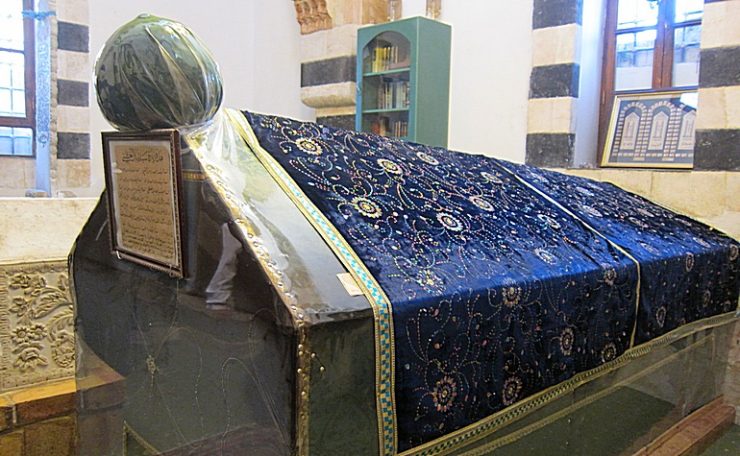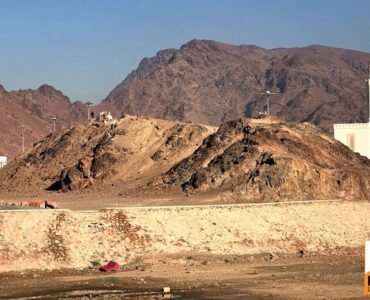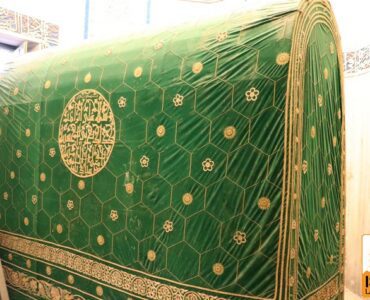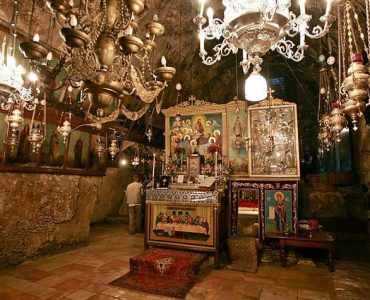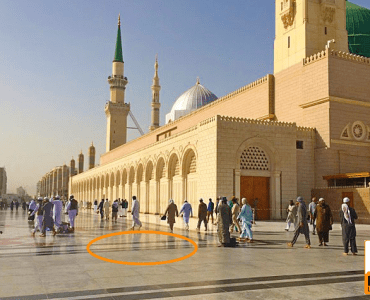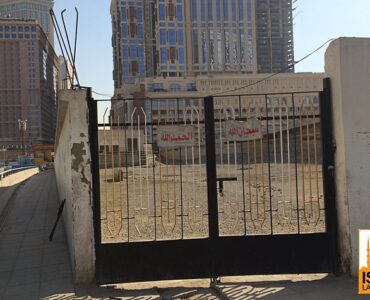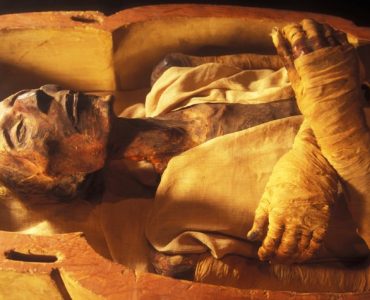This is the tomb of Bilal-bin-Rabah (رضي الله عنه), one of the best known of the galaxy of Sahabah as the Muezzin (caller to prayer) of the Prophet’s Masjid. It is located in the Bab al-Saghir cemetery in Damascus.
- Bilal (رضي الله عنه) was an Abyssinian (Ethiopian) slave of a disbeliever in Makkah. His conversion to Islam was, naturally, not liked by his master and he was, therefore, persecuted mercilessly. Ummayah-bin-Khalaf, who was the worst enemy of Islam, would make him lie down on the burning sand at mid-day and would place a heavy stone on his breast, so that he could not even move a limb. He would then say to him, “Renounce Islam or swelter and die.”
- Even under these afflictions, Bilal (رضي الله عنه) would exclaim: “Ahad” – The One (Allah), “Ahad” – The One (Allah).
- He was whipped at night and, with the cuts thus received, made to lie on the burning ground during the day to make him either forsake Islam or to die a lingering death from wounds. The torturers would get tired and take turns (Abu Jahl, Ummayah and others) and vie with one another in afflicting more and more painful punishment, but Bilal (رضي الله عنه) would not yield. At last Abu Bakr (رضي الله عنه) bought his freedom, and he became a free Muslim.
- Allah (ﷻ) rewarded his steadfastness. He was to have the honour of becoming the Prophet’s Muezzin. He was to always remain with him at home and abroad to call out the Azaan for his Salat. After the Prophet’s death it became very hard for him to continue his stay in Madinah where he would miss him at every step and in every corner. He therefore left Madinah, and decided to pass the rest of his life striving in the path of Allah. Once he beheld the Prophet (ﷺ) in his dream saying to him: “O Bilal! How is it that you never visit me?” .
- No sooner did he get up that he set out for Madinah. On reaching there, Hassan and Hussain (رضي الله عنهم), the Prophet’s grandsons, requested him to call out the Athan. He could not refuse them, for they were very dear to him. But as soon as the Athan was called, the people of Madinah cried openly out of their anguish at the memory of the happy old days of the Prophet’s time. Even the women came out of their houses weeping. Bilal (رضي الله عنه) left Madinah again after a few days and died in Damascus in 20 AH.
Note that this entry has been shown for information purposes only. On no account should anybody pray to a grave or seek supplication through them as this is tantamount to committing shirk, associating partners with Allah (ﷻ)
References: Fazail-e-Aamal – Sheikh Zakariyya Kandhalvi

